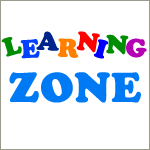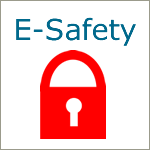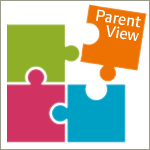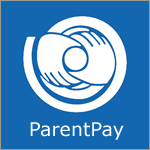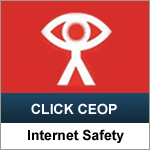Saxton Curriculum
Curriculum overview
At Saxton C of E Primary School, we offer a broad curriculum which:
- promotes the spiritual, moral, social, cultural, mental and physical development of our pupils;
- prepares all pupils for the opportunities, responsibilities and experiences of later life;
- ensures that all our children are fluent, confident readers with the skills to access a broad curriculum.
The school curriculum comprises all learning and other experiences planned for our pupils. We follow the statutory Early Years Foundation Stage Framework in EYFS and the National Curriculum in Key Stages 1 & 2. In addition, we tailor our planning to take into account key experiences that we believe our children should have, and that help them to understand key British values that prepare them fully for life in modern Britain.
We follow the STAR MAT curriculum aims, to:
- secure a consistent entitlement for all pupils in all areas of learning and to develop knowledge, understanding, skills and attitudes necessary for their self-fulfilment and development as active and lifelong learners.
- recognise the established standards of the EYFS Statutory Framework and National Curriculum and the expectations for learning and attainment made explicit to all stakeholders, which establishes national standards for the performance of all pupils in the subjects it includes.
- promote consistency and continuity of expectations in order to facilitate the transition of pupils between schools and phases of education and providing a foundation for future life, whilst offering opportunities for schools to deliver rich and broad content reflecting their uniqueness, widening pupils’ horizons and enabling them to flourish.
STARMAT Curriculum Principles
The curriculum in our school and that of other STARMAT schools is designed to help children become well-rounded individuals who have had opportunities to develop:
THEMSELVES
To become:
Physically and mentally healthy
Informed risk takers, confident problem solvers and critical thinkers
Articulate communicators
Reflective, resilient and able to self-regulate and take personal responsibility
THEIR ABILITY INTERACT WITH OTHERS AND CONTRIBUTE POSITIVELY TO SOCIETY
To become:
Tolerant and respectful of others; able to appreciate and celebrate diversity and difference
Responsible, aware and engaged citizens: locally, nationally and globally
Able to develop appropriate, positive and successful relationships with others
THE KNOWLEDGE AND SKILLS WHICH WILL EQUIP THEM FOR LIFE
An entitlement to:
Develop essential literacy skills, mathematical fluency, and become digitally literate
Be taught a broad, rich and age appropriate programme of study in every subject
Accessing stimulating learning opportunities that are relevant, bespoke and appropriate to them both within and beyond the ‘classroom’
Opportunities to take part in sport, performance and other creative activities to develop their talents and widen their aspirations
Feel prepared for the next stage in their education or career.
Curriculum organisation
As outlined in the Statutory Framework for EYFS ‘Every child deserves the best possible start in life and the support that enables them to fulfil their potential. Children develop quickly in the early years and a child’s experiences between birth and age five have a major impact on their future life chances. A secure, safe and happy childhood is important in its own right. Good parenting and high quality early learning together provide the foundation children need to make the most of their abilities and talents as they grow up.’ (July 2020)
We adhere to the Statutory Framework of the EYFS and the four guiding principles that shape practice within Early Years settings.
- Every child is a unique child, who is constantly learning and can be resilient, capable, confident and self-assured
- Children learn to be strong and independent through positive relationships
- Children learn and develop well in enabling environments, in which their experiences respond to their individual needs and there is a strong partnership between practitioners and parents and/or carers
- Children develop and learn in different ways and at different rates
Foundation Stage Curriculum
We play alongside our children within the EYFS to plan next steps for their learning and to move their learning forward in the moment.
In planning and guiding what children learn, we reflect on the different rates at which children are developing and adjust their practice appropriately. We adhere to the three characteristics of effective teaching and learning which are:
- playing and exploring – children investigate and experience things, and ‘have a go’
- active learning – children concentrate and keep on trying if they encounter difficulties, and enjoy achievements
- creating and thinking critically – children have and develop their own ideas, make links between ideas, and develop strategies for doing things
All the seven areas of learning and development are important and inter-connected.
Three areas are particularly crucial for igniting children’s curiosity and enthusiasm for learning, and for building their capacity to learn, form relationships and thrive. These three areas are the prime areas:
Communication and Language
Physical Development
Personal, Social and Emotional Development
Children are also supported through the four specific areas, through which the three prime areas are strengthened and applied.
The specific areas are:
Literacy
Mathematics
Understanding the World
Expressive Arts and Design
Children are provided with a range of rich, meaningful first-hand experiences in which children explore, think creatively and are active. We aim to develop and foster positive attitudes towards learning, confidence, communication and physical development.
As a team, we write medium term plans using the EYFS principles based on a skills-based curriculum looking at the particular needs of that cohort, each of which offers experiences in all seven areas. We speak with the children on a regular basis regarding what they would like to learn about these plans then inform our short-term weekly planning. We plan a balance between children having time and space to engage in their own child-initiated activities and those that are planned by the adults. During children’s play, early years practitioners interact to stretch and challenge children further. We teach our children in a variety of groupings such as whole class, small group or individually.
We teach Phonics using the Sounds Write guidance.
Key Stage 1&2 Curriculum
We organise our KS1&2 curriculum planning into a 2-year rolling programme. This means that children will cover the essential knowledge and skills during a 2-year period, rather than encountering it in their actual year group. For example, they will always learn about Roman Britain but may do this in either Year 3 or Year 4. They will be taught at the pitch appropriate for their ability and in line with our age-related expectations regardless of which year they are taught a topic.
We have chosen to apply a rolling programme because this allows staff to plan collaboratively with colleagues across both of our schools. In this way we can exploit interests, experiences and talents most effectively. We believe that this offers greater strengths than each teacher planning in isolation.
This is our rolling programme, or organisation of learning:
FINAL 2 year rolling programme (2022 – 23 is Year B)
Teachers plan activities that deliver the body of knowledge in ways that motivate and inspire children, whilst exploiting cross-curricular links that contextualise learning. They have created plans that illustrate the activities that learners will undertake.
Remote Learning
In extreme circumstances, such as enforced school closure, pupils will commence remote learning. This will be delivered through Google Classrooms following the guidance of our school and Trust policies:
STAR-MAT-Remote-Learning-Policy-v2-July-2021
Learning Portfolio
We have started to create a Learning Portfolio which exemplifies the activities that we teach in each subject, for each age group. This will help to illustrate the ways that we teach and the standards that we expect.
You can view our portfolio here: Learning Portfolio
The portfolio remains work in progress and will be updated periodically. We are collecting evidence all the time, and if subjects or classes have gaps in evidence we will update these as the subject is taught. Additional evidence can be viewed on our social media feeds.
Our planning
You can find out more about how we organise our curriculum on our Curriculum Organisation page. Teachers will use the curriculum information below to produce discreet plans that indicate how and when specific content will be delivered.
Key Stage 1
To see the current theme overview of what is being taught in KS1 please click here: KS1 Autumn 22 Theme Planning Overview
In the Early Years and KS1 we teach phonics and early reading through the ‘Sounds, Write’ programme to ensure that each child has a dedicated daily session that builds phonic understanding systematically. We know that this brings good results and provides children with the essential building blocks needed to become confident and fluent readers.
You can find out how your child will learn to read here: How will my child learn to read
And how you can help them at home: 10 Tips on Hearing Your Child Read
You can read about how you can support with maths learning here: Parents guide for maths
You can find see our science principles in action here: Our Science Vision and Principles in Action
Key Stage 2
To see the current theme overview of what is being taught in Years 3 & 4 please click here: Y34 Topic Web Overview – Autumn 2022
To see the current theme overview of what is being taught in Year 5 & 6 please click here: Year 5_6 Autumn 2Theme Planning Overview
There are ideas to support reading at home here: parents-little-guide
You can find out how we teach maths calculations here: MATHS CALCULATION BOOKLET 2014
This is our guide to maths learning: Parents guide for maths
You can find see our science principles in action here: Our science vision and principles in action
Curriculum content
Our curriculum is organised using a 2-year rolling programme. This means that children in mixed-aged classes continually learn new content at an age-appropriate level without duplication. It also helps staff to share expertise and knowledge when planning collaboratively. You can see how our curriculum is organised here: FINAL 2 year rolling programme
The following links identify the essential body of knowledge and skills that children will learn during each year in our school. The right-hand column of each subject is the minimum expectation that we have established across the multi-academy trust, and this will be delivered across all our schools so that our children have the same entitlement. The left-hand column indicates the ways that we will deliver this learning in school.
Teachers use these documents to design plans that will connect learning in meaningful ways for children. You can find these on another page under the ‘Curriculum’ menu.
Please click on a subject to see what we will teach:
Art and Design content and progression
Computing_ICT content and progression
Geography content and progression
History content and progression
Maths content and progression framework
PE subject content and progression
Phonics content and progression
Science content and progression
Writing Whole-School Coverage and Progression
Follow this link to the Department of Education website.
Click here to contact the school for further information
